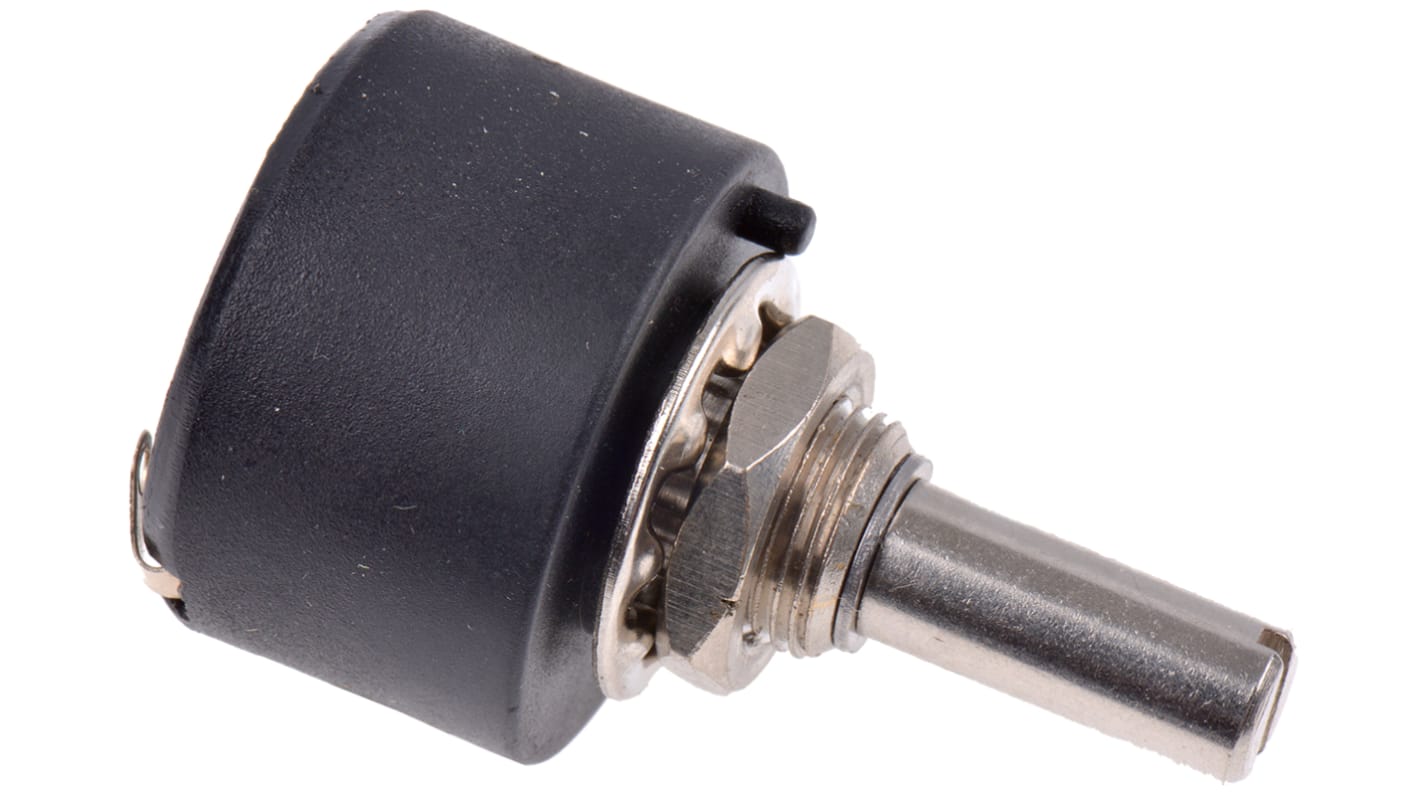RS PRO 2.5kΩ Rotary Potentiometer 1-Gang Panel Mount
- RS庫存編號:
- 842-7012P
- 製造商:
- RS PRO
可享批量折扣
單價 个 (以每袋裝提供)
HK$53.50
146 現貨庫存,可於3工作日發貨。*
* 交貨日期可能會根據您選擇的數量和交貨地址而變更。
訂單金額滿 HK$850.00 即可享受 免費 送貨服務
單位 | 每單位 |
|---|---|
| 13 - 64 | HK$52.30 |
| 65 + | HK$43.10 |
- RS庫存編號:
- 842-7012P
- 製造商:
- RS PRO
RS PRO 25 mm Wirewound Potentiometers - Single turn
Brought to you by RS PRO, a series of rotary potentiometers suitable for various applications. Widely used within electronics, each model can be mounted within various devices or even on PCB applications. These particular models generally have a rotational life of 100,000 revolutions and will excel within audio or electronic uses. All models are highly reliable and excellent quality.
Features and Benefits
• Robust construction
• 25 mm shaft
• 1 W power rating
• Single turn
• 285° rotation (mechanical angle)
• 25 mm shaft
• 1 W power rating
• Single turn
• 285° rotation (mechanical angle)
What is a potentiometer?
A potentiometer is a variable resistor which increases or decreases the resistance in an application. Usually available as either digital or analogue, there are two main types of potentiometers, rotary and linear.
• Linear - comes in a rectangle strip shape and can be pulled up or down for the required resistance, Used a lot within sound systems for mic output or volume control.
• Rotary - the shaft is housed by a knob, you would find these on dimmer switches or speakers, turning (usually to the right) will increase the resistance amplifying the output, whether that is light, sound or voltage.
• Linear - comes in a rectangle strip shape and can be pulled up or down for the required resistance, Used a lot within sound systems for mic output or volume control.
• Rotary - the shaft is housed by a knob, you would find these on dimmer switches or speakers, turning (usually to the right) will increase the resistance amplifying the output, whether that is light, sound or voltage.
How do potentiometers work?
Used in various applications, potentiometers operate as a resistor for electronic devices. As an example, a dimmer switch you would find in place of a light switch would house a potentiometer. Whichever direction it is turned, either increases or decreases the resistance, manipulating the light output from the bulb. Another common use would be speaker or sound systems, operating as a volume switch. There are various types of element material, usually as rotary or linear, such as:
• Wire-wound
• Conductive
• Plastic
• Carbon
• Cermet
• Wire-wound
• Conductive
• Plastic
• Carbon
• Cermet
For products that are Customized and under Non-cancellable & Non-returnable, Sales & Conditions apply.
Attribute | Value |
|---|---|
| Potentiometer Type | Rotary |
| Maximum Resistance | 2.5kΩ |
| Number of Gangs | 1 |
| Number of Turns | 1 |
| Power Rating | 1W |
| Electrical Taper | Linear |
| Element Material | Wirewound |
| Mounting Type | Panel Mount |
| Termination Style | Solder |
| Shaft Length | 25mm |
| Shaft Diameter | 6.35 mm |
| Actuator Type | Slotted Shaft |
| Series | P25 |
| Tolerance | ±10% |

